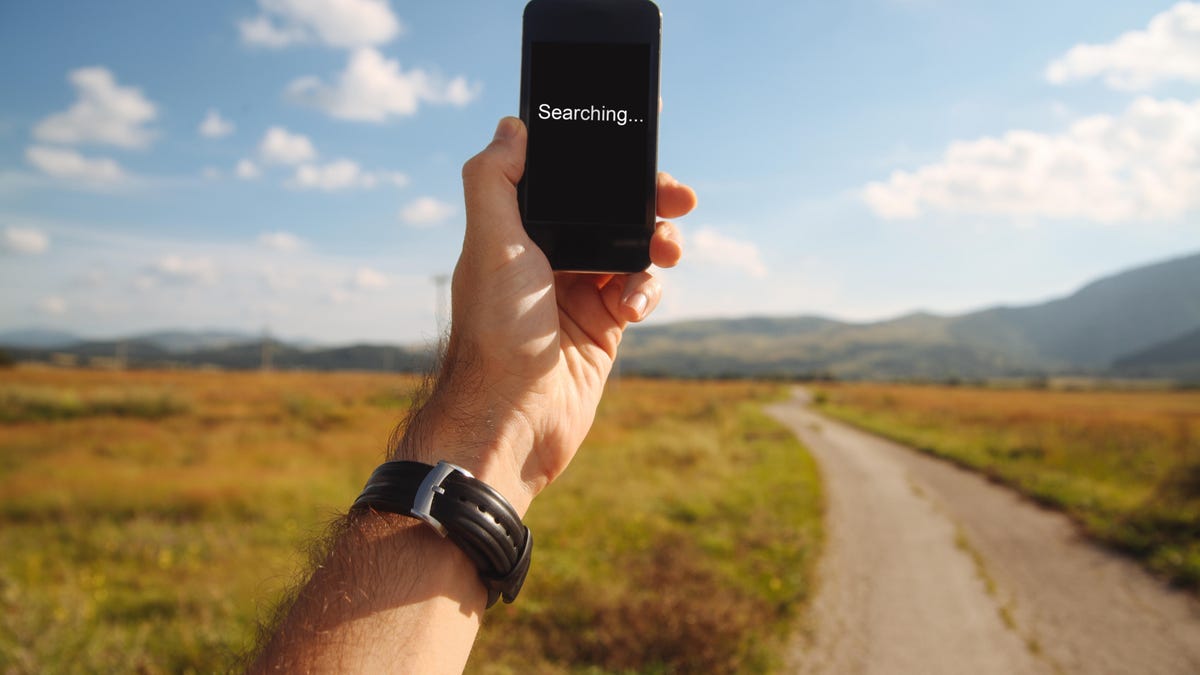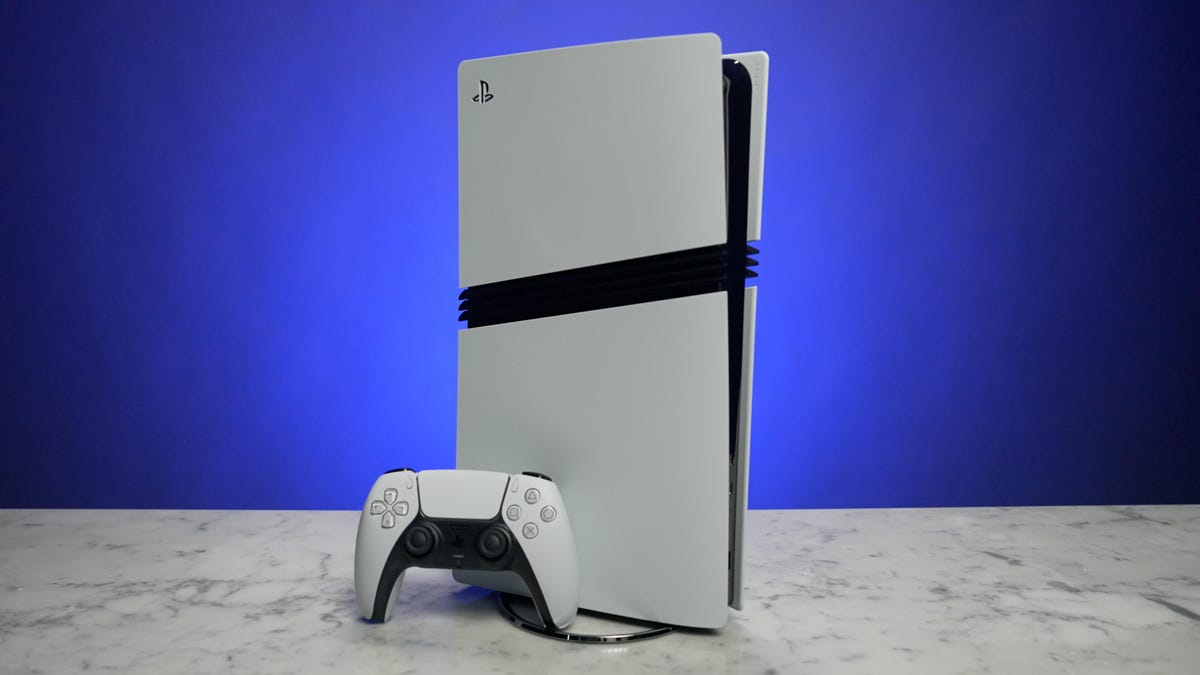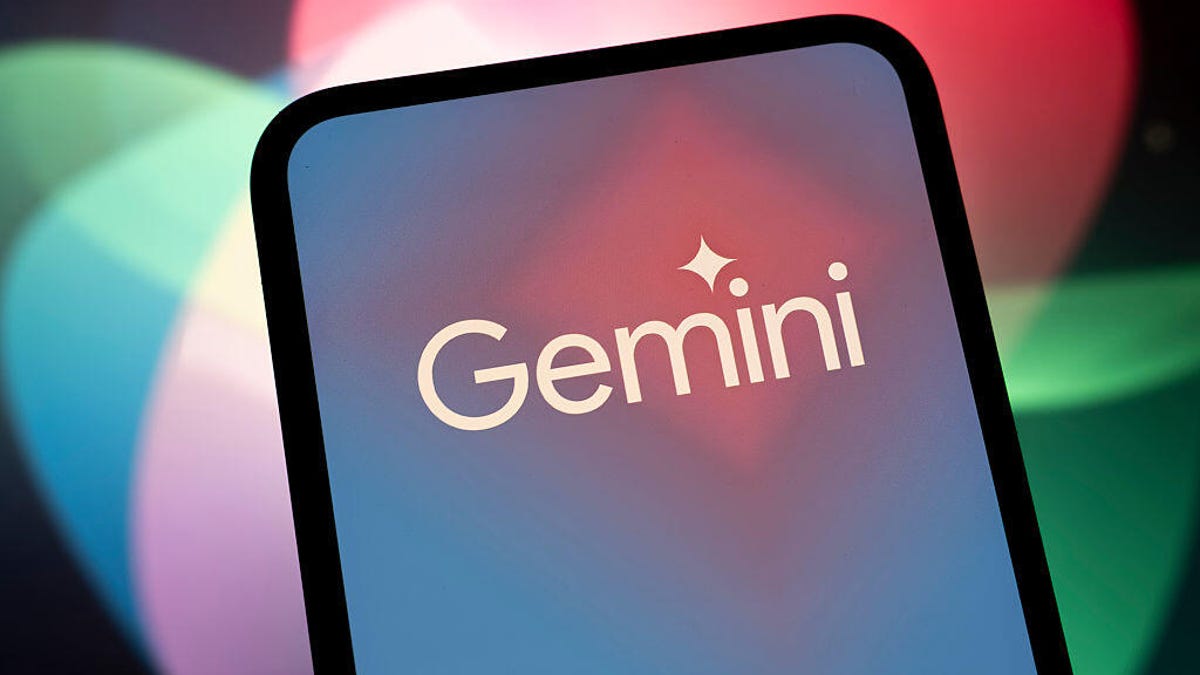Technologies
These 10 Fixes Might Finally Solve Your Awful Cell Signal Issues
These phone hacks could finally fix your frustrating signal problems.

Summer road trips are all about freedom, keeping the windows down, playlists up, and adventure ahead. But nothing kills the vibe faster than hitting a dead zone with no signal. Suddenly your GPS freezes, your music cuts out, and you’re stuck with no way to reroute, stream, or even call for help if something goes wrong. Whether you’re crossing state lines or just heading off the beaten path for the weekend, staying connected is more important than ever.
Luckily, you don’t need a tech overhaul or a brand-new phone to fix bad reception. A few quick tricks can help boost your signal, no matter if you’re using an iPhone or Android. From adjusting your phone’s settings to switching up where you place it in your car, these hacks are easy to try, and they might just save your trip.
Whether you’re doing some routine phone maintenance or you’re stuck in an emergency, there are multiple ways to improve your reception on an iPhone or Android phone, no matter what type of phone plan you’re on. It might even come down to something as simple as toggling Airplane mode.
To go from dropped calls to full bars, here’s what you need to know.
Note: Although software across different iPhone models is relatively the same, Samsung Galaxy, Google Pixel and other Android phones may have different software versions, so certain settings and where they are located might differ depending on device.
For more, check out how you can use Google Maps when you’re offline and how you can maybe fix your internet when it’s down.
To improve your cellphone service, try these steps first
The settings on your phone can help you get better cell service, but there are other tricks for improving your reception without even touching your phone’s software.
- Move yourself so that there are no obstructions between your phone and any cell towers outside. That might involve stepping away from metal objects or concrete walls, which both kill reception. Instead, get to a window or go outside if possible.
- Remove your phone case. It doesn’t hurt to remove whatever case you have on your phone, especially if it’s thick, so that the phone’s antenna isn’t blocked by anything and can get a better signal.
- Make sure your phone is charged. Searching for and connecting to a stronger signal drains power, so if your phone battery is already low on charge, you may have a difficult time getting good service.
Always start by turning Airplane mode on and off
Turning your phone’s connection off and then back on is the quickest and easiest way to try and fix your signal woes. If you’re moving around from one location to another, toggling Airplane mode restarts the Wi-Fi, Bluetooth and cellular network modems, which forces them to find the best signal in the area.
Android: Swipe down from the top of your screen — to access the Quick Settings panel — and then tap the Airplane mode icon. Wait for your phone to completely disconnect from its Wi-Fi and cellular connections. It doesn’t happen instantly, so give it a good 15 seconds before you tap on the Airplane mode icon again.
iPhone: On the iPhone, you can access Airplane mode from the Control Center, but that varies depending on which iPhone model you have. On the iPhone X and later, swipe down from the top-right corner to access the Control Center. On older iPhone models, swipe up from the bottom of the screen. Then tap the Airplane mode icon, which will turn orange when it’s enabled. Again, wait up to 15 seconds before turning it off.
If Airplane mode doesn’t work, restart your phone
Our phones are miniature computers, and just like computers, sometimes you can fix issues like network connection by simply restarting them.
Android: Hold down the power button, or the power button and the volume down key (depending on your Android phone), until the on-screen menu shows up, and then tap Restart. If your phone doesn’t offer a restart option, you can simply tap Power Off to shut down your device, and then boot it back up with the power button.
iPhone: On the iPhone X and older models, hold down the sleep/wake button and either one of the volume buttons and then swipe right on the power slider to turn off the device. Wait until it fully turns off, then press down on the sleep/wake button to turn it back on.
Alternatively, you can do a force reset on your iPhone: Press the volume up button, followed by the volume down button and then press and hold the side button. Keep holding it in, after your phone’s screen goes black and until you see the Apple logo appear again.
If your iPhone has a home button, hold down the sleep/wake button until the power slider is displayed and then drag the slider to the right. Once the device is turned off, press and hold the sleep/wake button until you see the Apple logo.
Older phone? Take your SIM card out
Another troubleshooting step that might help is to remove your SIM card, if your phone has one, and then place it back in with the phone turned on. If the SIM card is dirty, clean it. If it has any physical defects, you may need to replace it.
You’ll need a SIM card tool — usually included in your phone’s box — or an unfolded paper clip or sewing needle to get the SIM tray out of your phone.
All phones: Remove the SIM card, check to see if it’s damaged and positioned in the SIM tray correctly, then put it back in your phone.
eSIM: For phones with an eSIM — that is, an embedded electronic SIM in your phone — there’s nothing for you to remove. The best you can do is restart your phone.
Check your carrier settings (and update your software)
Mobile carriers frequently send out carrier settings updates to help improve connectivity for calls, data and messages on their network. Although this feature is available on all iPhone models, it’s not universal on Android, so you might not find carrier settings if you don’t have a supported phone.
iPhone: Carrier updates should just appear, and you can update from the pop-up message that appears. To force your iPhone to check for a carrier settings update, go to Settings > General > About on your phone. If an update is available, you’ll be prompted to install it.
Android: As mentioned before, not all Android phones have carrier settings, so you’ll have to open the Settings app and type in «carrier settings» to find any possible updates. On supported Pixels, go to Settings > Network & internet > Internet, tap the gear next to your carrier name and then tap Carrier settings versions.
Reset your phone’s network settings
Sometimes all you need is a clean slate to fix an annoying connectivity issue. Refreshing your phone’s network settings is one way to do that. But be forewarned, resetting your network settings will also reset any saved Wi-Fi passwords, VPN connections and custom APN settings for those on carriers that require additional setup.
Android: In the Settings app, search for «reset» or more specifically «reset network settings» and tap on the setting. On the Pixel, the setting is called Reset Wi-Fi, mobile & Bluetooth. After you reset your network settings, remember to reconnect your phone to your home and work Wi-Fi networks.
iPhone: Go to Settings > Transfer or Reset iPhone > Reset > Reset Network settings. The next page will warn you that resetting your network settings will reset your settings for Wi-Fi, mobile data and Bluetooth. Tap Reset Network Settings and your phone will restart.
Contact your phone carrier
Sometimes unexpected signal issues can be traced back to problems with your wireless carrier. A cell tower could be down, or the tower’s fiber optic cable could have been cut, causing an outage.
For consistent problems connecting to or staying connected to a cellular or data network, it’s possible your carrier’s coverage doesn’t extend well into your neighborhood.
Other times, a newfound signal issue can be due to a defect with your phone or a SIM card that’s gone bad. Contacting your carrier to begin troubleshooting after you’ve tried these fixes is the next best step to resolving your spotty signal.
If all else fails, try a signal booster to improve cell reception
If after going through all of our troubleshooting steps, including talking to your carrier to go over your options, you’re still struggling to keep a good signal — try a booster. A signal booster receives the same cellular signal your carrier uses, then amplifies it just enough to provide coverage in a room or your entire house.
The big downside here is the cost. Wilson has three different boosters designed for home use, ranging in price from $349 for single room coverage to $999 to cover your entire home. To be clear, we haven’t specifically tested these models. Wilson offers a 30-day money-back guarantee and a two-year warranty should you have any trouble with its products.
Technologies
Today’s NYT Mini Crossword Answers for Friday, Feb. 20
Here are the answers for The New York Times Mini Crossword for Feb. 20.

Looking for the most recent Mini Crossword answer? Click here for today’s Mini Crossword hints, as well as our daily answers and hints for The New York Times Wordle, Strands, Connections and Connections: Sports Edition puzzles.
Today’s Mini Crossword expects you to know a little bit about everything — from old political parties to architecture to video games. Read on for all the answers. And if you could use some hints and guidance for daily solving, check out our Mini Crossword tips.
If you’re looking for today’s Wordle, Connections, Connections: Sports Edition and Strands answers, you can visit CNET’s NYT puzzle hints page.
Read more: Tips and Tricks for Solving The New York Times Mini Crossword
Let’s get to those Mini Crossword clues and answers.
Mini across clues and answers
1A clue: Political party that competed with Democrats during the 1830s-’50s
Answer: WHIGS
6A clue: Four Seasons, e.g.
Answer: HOTEL
7A clue: Dinosaur in the Mario games
Answer: YOSHI
8A clue: Blizzard or hurricane
Answer: STORM
9A clue: We all look up to it
Answer: SKY
Mini down clues and answers
1D clue: «Oh yeah, ___ that?»
Answer: WHYS
2D clue: Says «who»?
Answer: HOOTS
3D clue: «No worries»
Answer: ITSOK
4D clue: Postmodern architect Frank
Answer: GEHRY
5D clue: Narrow
Answer: SLIM
Technologies
PlayStation 6 Rumors: Potential 2029 Release, Specs, Pricing and More
While the PS6’s release is still years away, here’s what we know so far about the next-gen console from Sony.

The PlayStation 5 will turn six years old this year. For a game console, that means it’s coming into its twilight years. So, it’s understandable that gamers are starting to wonder what’s next. There’s is nothing official so far from Sony on when the PlayStation 6 might arrive, though.
Still, reports and rumors are circulating about Sony’s next-gen game console. While Sony has a sizable market lead over Microsoft’s Xbox, it now has different competition coming from the new powered-up Nintendo Switch 2 and the upcoming Steam Machine home console from Valve. Both devices offer different challenges for Sony in terms of portability, library of games and pricing.
Here’s what we know about the PS6 so far.
When will the PS6 come out?
Sony, for obvious reasons, hasn’t provided a window for when the PS6 will come out. Speculation puts the console’s release in 2027, which would be seven years after the release of the PS5, and consoles have generally been on a seven-year cycle.
Sony could push the release to 2028, according to a report from David Gibson, senior analyst at MST Financial. He believes the new PlayStation will likely be delayed as the company is expanding the lifecycle of the PS5, according to VideoGame Chronicles. However, a new report from Bloomberg says the release date could be pushed back to 2029, thanks to the current RAM shortage.
Will the PS6 be a handheld?
It does appear that Sony might be developing both a console and a handheld. Rumors were circulating that Sony was creating a handheld on par with the Nintendo Switch to complement the console.
The speculation is that this handheld will be able to play new PS6 games, as well as PS5 and PS4 games. While this seems unlikely from a handheld, it’s possible the device would have enough power to run PS5 games and, in turn, PS4 titles, while PS6 games would be playable at a lower visual quality.
The YouTube channel Moore’s Law Is Dead reported in December that this PS6 handheld is already being tested by developers but that its lower-power mode reportedly doesn’t play PS5 games well, as it lowers the frames of the game when in use.
Sony’s strategy for this generation could be about keeping players in the PlayStation ecosystem at home and on the go, so they won’t be tempted by competitor handhelds such as the Xbox ROG Ally or Steam Deck.
How much will the PS6 cost?
Figuring out the potential pricing for this upcoming generation of consoles is tricky. There are so many unknown factors that complicate the answer.
Current tariffs, for example, have caused Sony, like Microsoft and Nintendo, to raise console prices, making it hard to predict what will happen in the coming years. The tariffs could go away, but if they continue, Sony may have to move its console production to another country that has a minimal tariff or hope that the countries that manufacture its hardware — Vietnam and China — strike a deal with the US.
Another issue is the RAM shortage and the resulting skyrocketing prices. Brought on by the demands of data centers across the globe being built out to handle the growth in AI usage, memory prices have already jumped. Those increases are leading to more expensive desktops, laptops and, really, anything that uses RAM, like tablets, phones and gaming devices.
The sweet spot for any console release would be $500, but that seems more like a pipe dream at this point. What could be used as a marker for hardware prices is Valve’s upcoming Steam Machine later this year, which is speculated to stay in the $600 to $700 range.
As for the handheld portion, the pricing could be more aggressive than the offering of the current handheld market. A video from August, from the YouTube channel Moore’s Law Is Dead, says the pricing for the PS6 portable could be in the range of $400 to $500. This could mean that to get the full PS6 experience, gamers will have to drop at least $1,000.
What are the PS6 specs?
Like other gaming hardware makers, Sony is working closely with AMD for its components. Back in October, the lead architect for the PS5, Mark Cerny, hosted a video with Jack Huynh, SVP and GM of AMD’s computing and graphics group. The video was uploaded to the PlayStation YouTube channel.
While the talk between the two didn’t confirm what technology will power the PS6, they hinted a bit about what’s next with a collaboration between the two companies, called Project Amethyst.
Huynh introduced Radiance Cores, which are AMD’s new technology for ray tracing and path tracing. Another technology, introduced to handle the GPU demands of AMD’s Fidelity Super Resolution and PlayStation Spectral Super Resolution upscaling, is Neural Arrays. And AMD’s Universal Compression can help relieve bottlenecks with the GPU memory bandwidth limitations.
While there are few verifiable details about the chips powering the PS6, Sony will work with AMD to create customized hardware for its PS6, just like Nintendo did with the Switch 2 and Microsoft is doing with the next Xbox.
The PS6 is likely to have at least 16GB of RAM and a 1TB solid-state drive for storage. It will also likely have the latest standards for wireless technology, such as Wi-Fi 7, and the newest media interface, HDMI 2.2.
Sony will also develop some other PlayStation-focused features in the same fashion as the adaptive triggers on the DualSense PS5 controller and more functionality with cloud gaming for PS Plus subscribers.
Many questions are still left to be answered about the PS6, with the ultimate question on whether the 10th generation of game consoles will, in fact, be the last.
Technologies
Google Rolls Out Latest AI Model, Gemini 3.1 Pro
Starting Thursday, Gemini 3.1 Pro can be accessed via the AI app, NotebookLM and more.

Google took the wraps off its latest AI model, Gemini 3.1 Pro, on Thursday, calling it a «step forward in core reasoning.» The software giant says its latest model is smarter and more capable for complex problem-solving.
Google shared a series of bookmarks and examples of the latest model’s capabilities, and is rolling out Gemini 3.1 to a series of products for consumers, enterprise and developers.
The overall AI model landscape seems to change weekly. Google’s release comes just a few days after Anthropic dropped the latest version of Claude, Sonnet 4.6, which can operate a computer at a human baseline level.
Benchmarks of Gemini 3.1
Google shared some details about AI model benchmarks for Gemini 3.1 Pro.
The announcement blog post highlights that the Gemini 3.1 Pro benchmark for the ARC-AGI-2 test for solving abstract reasoning puzzles sits at 77.1%. This is noticeably higher than Gemini 3 Pro’s 31.1% score for the same test.
The ARC-AGI-2 benchmark is one of multiple improvements coming from Gemini 3.1 Pro, Google says.
3.1 Pro enhancements
With better benchmarks nearly across the board, Google highlighted some of the ways that translate in general use:
Code-based animations: The latest Gemini model can easily create animated SVG images that are scalable without quality loss and ready to be added to websites with a text prompt.
Creative coding: Gemini 3.1 Pro generated an entire website based on a character from Emily Brontë’s novel Wuthering Heights, if she were a landscape photographer showing off her portfolio.
Interactive design: 3.1 Pro was used to create a 3D interactive starling murmuration that allows the flock to be controlled in an assortment of ways, all while a soundscape is generated that changes with the movement of the birds.
Availability
As of Thursday, Gemini 3.1 Pro is rolling out in the Gemini app for those with the AI Pro or Ultra plans. NotebookLM users subscribed to one of those plans will also be able to take advantage of the new model.
Both developers and enterprises can also access the new model via the Gemini API through a range of products, including AI Studio, Gemini Enterprise, Antigravity and Android Studio.
-

 Technologies3 года ago
Technologies3 года agoTech Companies Need to Be Held Accountable for Security, Experts Say
-

 Technologies3 года ago
Technologies3 года agoBest Handheld Game Console in 2023
-

 Technologies3 года ago
Technologies3 года agoTighten Up Your VR Game With the Best Head Straps for Quest 2
-

 Technologies4 года ago
Technologies4 года agoBlack Friday 2021: The best deals on TVs, headphones, kitchenware, and more
-

 Technologies5 лет ago
Technologies5 лет agoGoogle to require vaccinations as Silicon Valley rethinks return-to-office policies
-

 Technologies5 лет ago
Technologies5 лет agoVerum, Wickr and Threema: next generation secured messengers
-

 Technologies4 года ago
Technologies4 года agoOlivia Harlan Dekker for Verum Messenger
-

 Technologies4 года ago
Technologies4 года agoiPhone 13 event: How to watch Apple’s big announcement tomorrow
